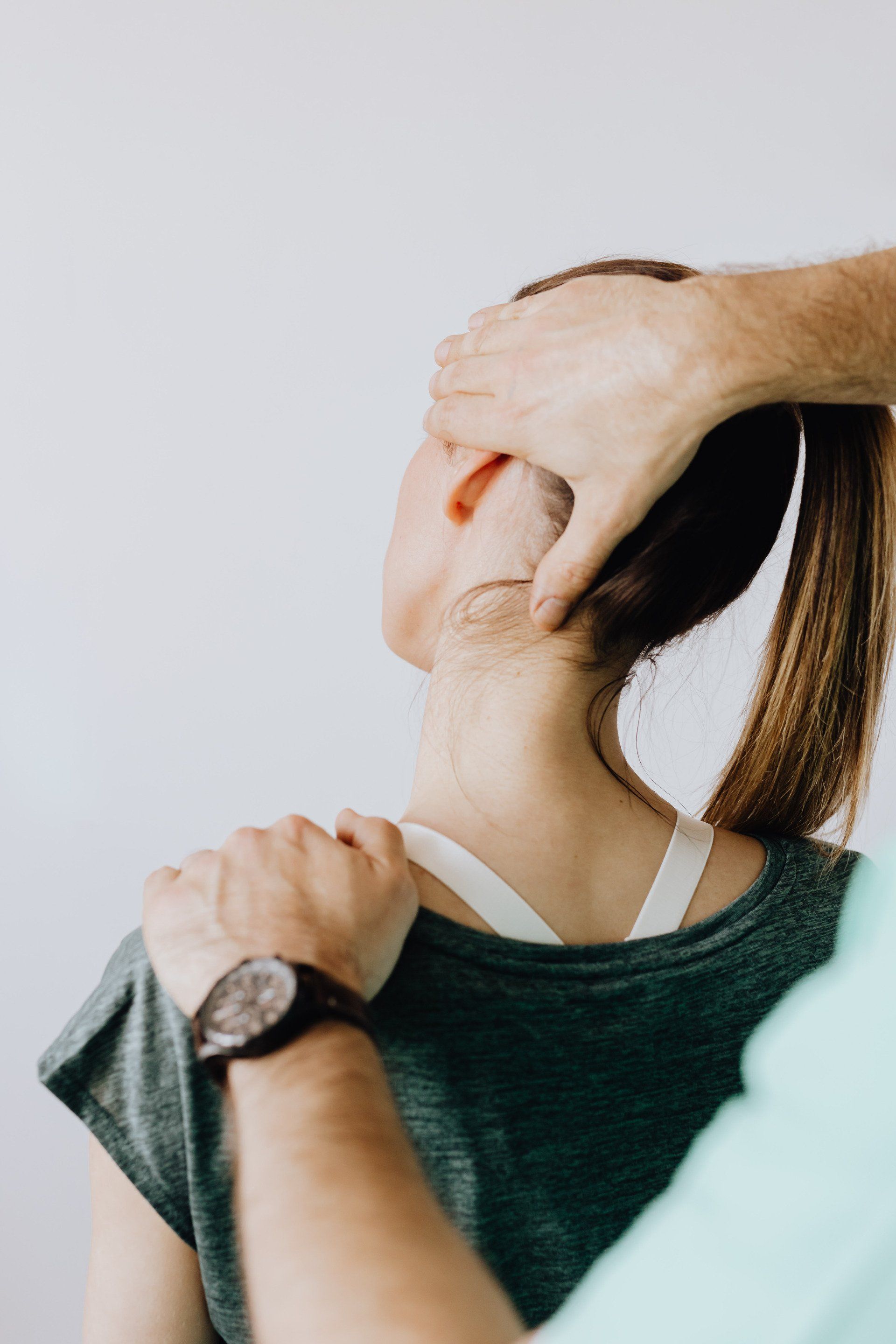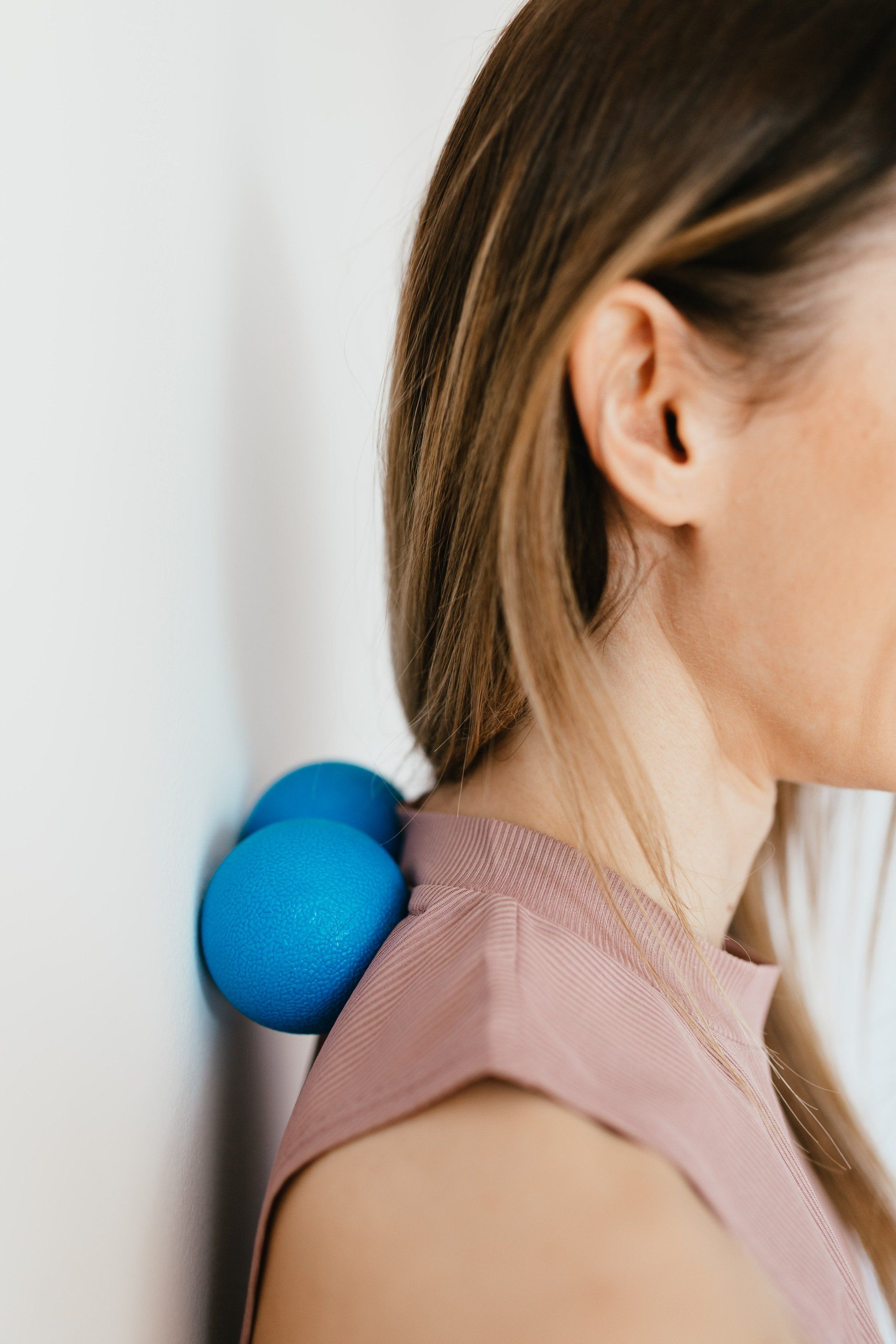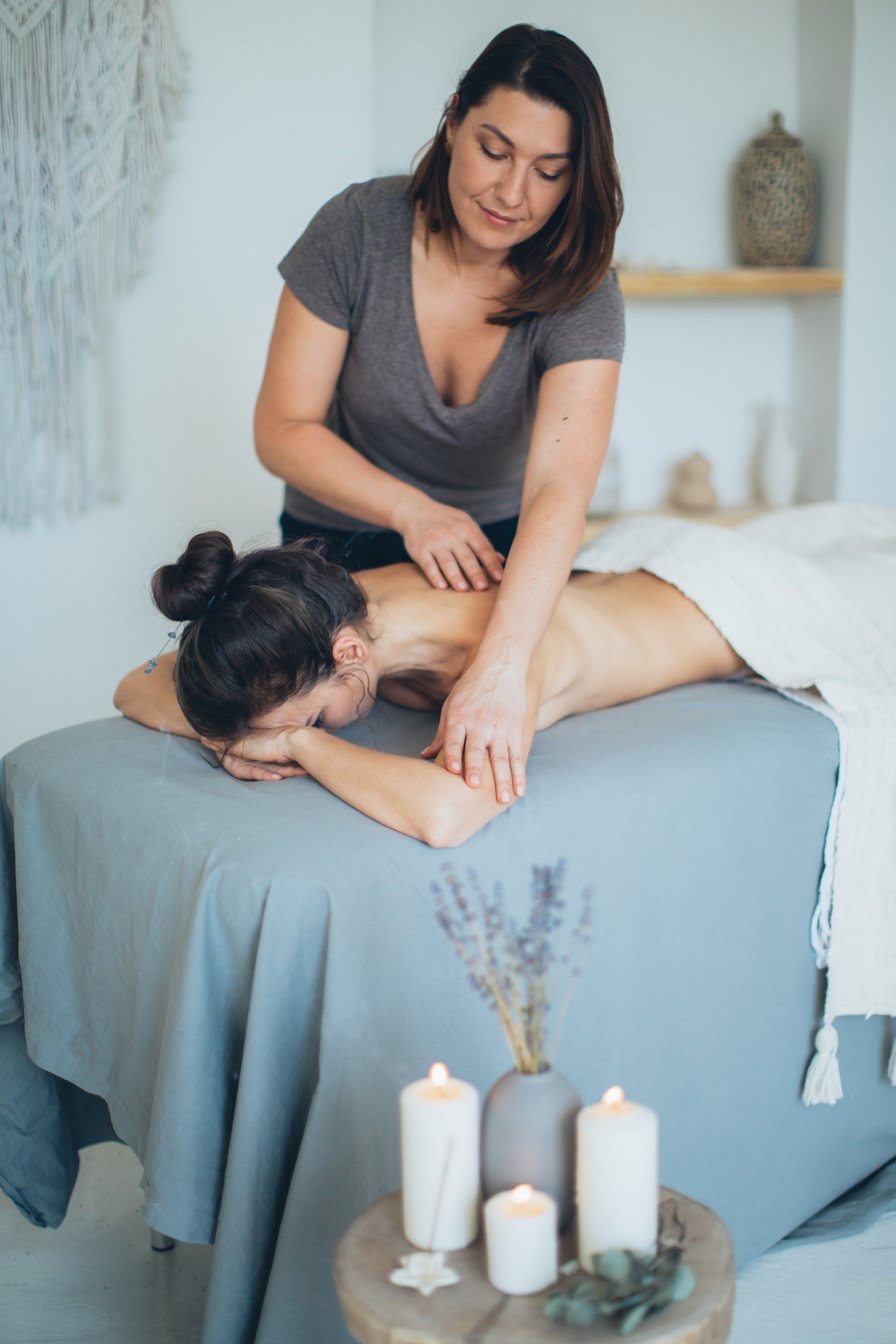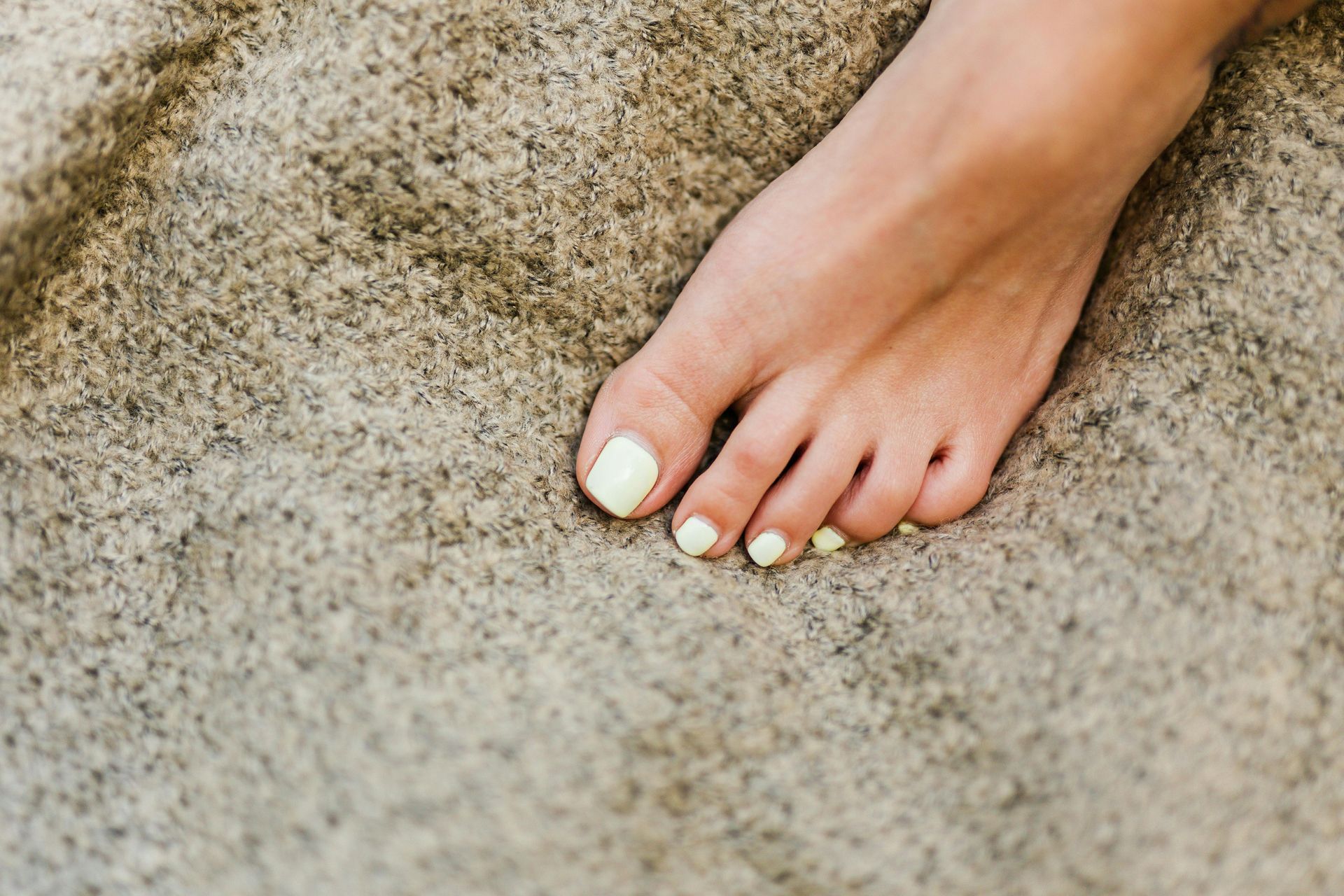If you're not too impatient, you can just wait it out. After a few days, the healing process will be complete and the inflammation will subside.
But if you'd like to help things along, there are options.
Let's start with the easiest - take a good stretch! This is particularly effective if you've been sat in one position for a long time. Your body will thank you for changing the range of movement. Try and do something that moves you in the opposite direction to how you've been sitting. Want some examples that will help if you're someone who sits at a desk all day? Check out this blog.
(ICYMI, I also have a 30 minute Zoom Stretch class every Friday at 8.15am UK time where you tell me what you need to release that day and we stretch accordingly. Book your first class for free here.
The second easiest is known as "self-myofascial release", "trigger point rolling" or sometimes "foam rolling".
To do this, you'll need a foam roller, or a small ball. There are LOADS of options out there. If I was to recommend a couple of different things you might want in your cupboard (NB - affiliate links ahead, meaning Amazon pay me a very small commission if you buy, at no cost to you!), I'd go for a couple of hard balls, and a Triggerpoint Foam Roller.
(Sometimes, at your request, we use these in Friday morning stretch too! Particularly for feet where we hold a lot of tension)
If you'd like to learn more about what's happening when you use a hard ball on your feet, check out this blog.













